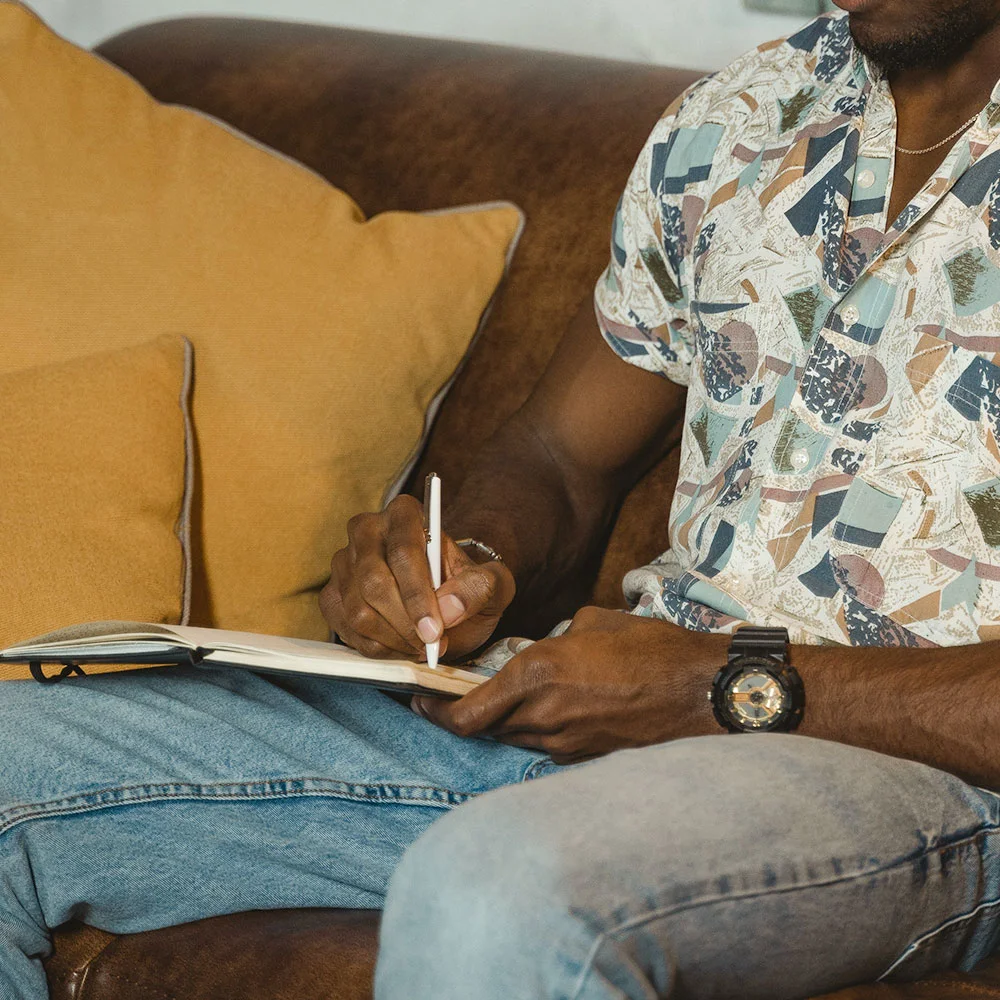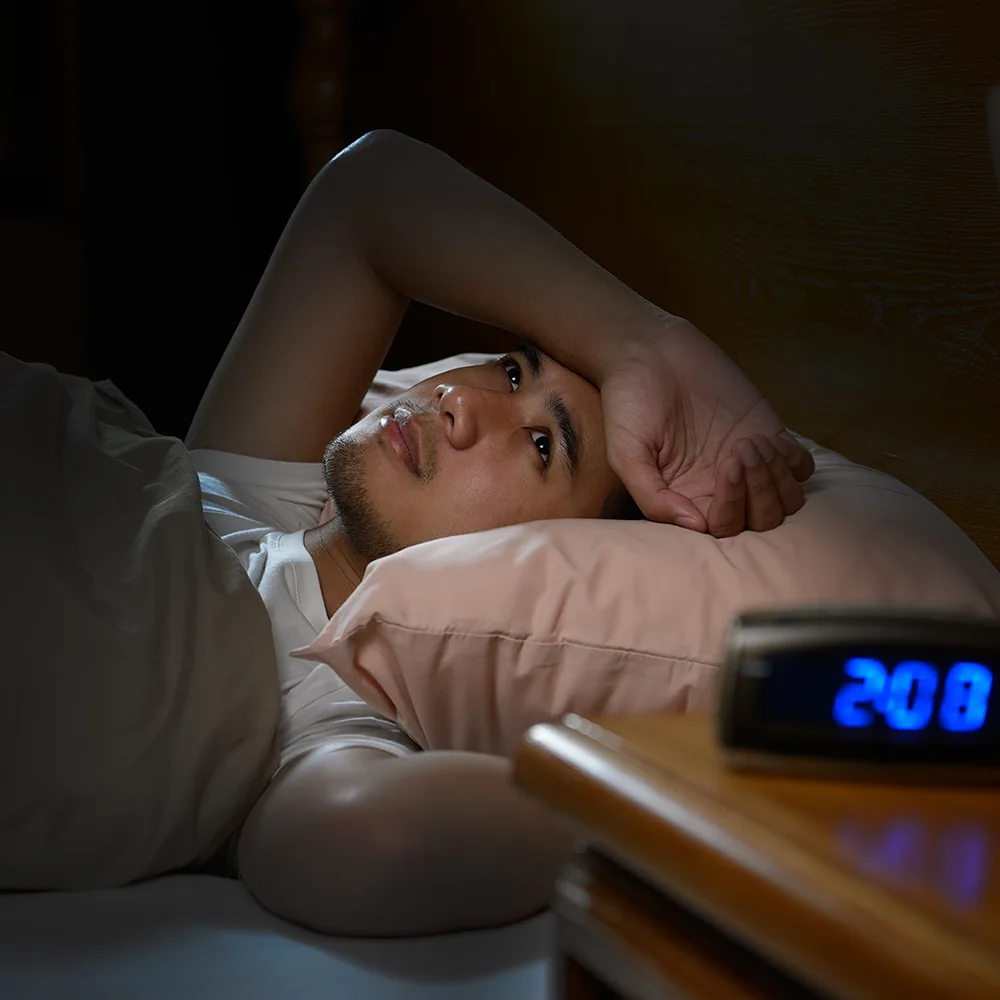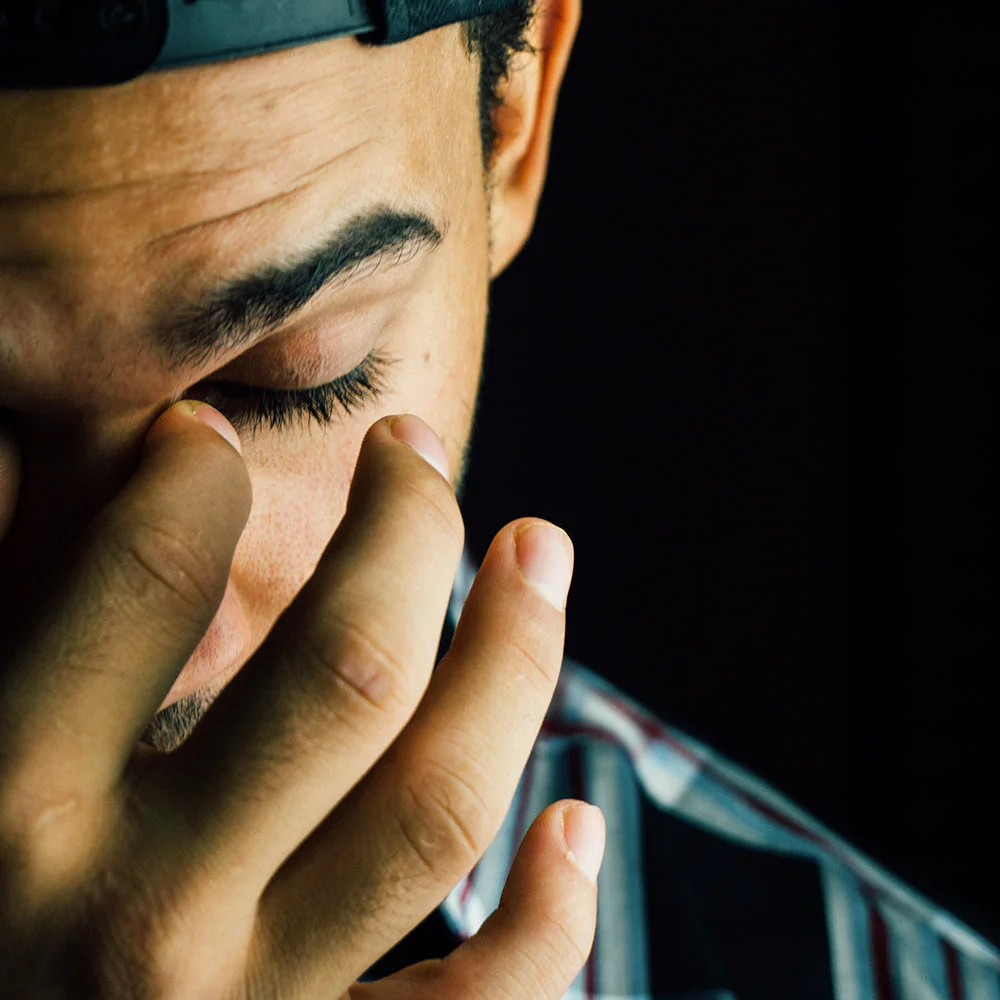Here's what we'll cover
Here's what we'll cover
Here's what we'll cover
In some ways, a lot of life is a kind of performance.
Whenever you’re around other people—whether you’re talking with your spouse or passing a stranger on the street—those people are paying attention to how you look, sound, and act. Likewise, you can’t help evaluating the people around you.
This kind of back-and-forth evaluation is a necessary and automatic part of human interaction. We all do it. And to some extent, we all adjust our words, actions, or behaviors as a result. In other words, we perform. Likewise, we perform when we write emails, take tests, or do anything else that may change other people’s opinions of us. And all of these scenarios may lead to some anxiety.
But in certain situations, the stakes are raised. For example, you may be performing in some way for a big group of people. Or maybe your performance has big consequences. Or both.
In these situations, it’s much more common for people to feel performance anxiety.
What is performance anxiety?
Anxiety, in a nutshell, is fear or worry that is future-oriented. That means it’s focused on something bad that may or may not happen instead of something that has already happened (Chand, 2021). Performance anxiety is a specific type that stems from situations in which you feel like you will be judged or scrutinized. You’re worried that this scrutiny will have negative consequences (Rowland, 2019).
A lot of different scenarios can cause performance anxiety.
For example, those with social anxiety disorder may experience a kind of performance anxiety whenever they’re around other people. They recognize that any kind of social interaction will subject them to a measure of evaluation and judgment. And this causes them to feel anxious (Chand, 2021).
But apart from social anxiety, some situations are common performance anxiety triggers. These situations include public speaking and any other type of performance in front of an audience, such as sports. Music performance anxiety is also common. So is performance anxiety during sexual intercourse (Rowland, 2019).
The causes of performance anxiety
A mixture of personal and situational factors can cause performance anxiety. Some examples of personal factors include (Rowland, 2019):
Fear of evaluation or judgment
Lack of preparation or experience
A generally high level of anxiety or anxiety-related mental health conditions
Low self-confidence or low self-esteem
Shyness or introversion
Perfectionism or high self-expectation
Some examples of situational factors include:
Lots of spectators or a high level of public scrutiny
High stakes
A difficult partner, viewer, or someone else who gives you anxiety
For someone who is very shy, even a small group of observers or low stakes could lead to performance anxiety. On the other hand, even professional musicians or athletes experience performance anxiety during high-stakes situations.
Other factors can also stoke performance anxiety. For example, if you’ve performed poorly in a situation in the past, that can create a lot of anxiety when you’re confronted again with the same or a similar situation (Rowland, 2019).
The symptoms of performance anxiety
Some symptoms are common across the different types of performance anxiety.
The general symptoms of performance anxiety can be broken down into a few different categories. These include physical symptoms such as (Rowland, 2019):
Shaking or trembling
Cold hands
Elevated heart rate
Sweating
Nausea
Muscle tension
Rapid breathing or hyperventilation
Dry mouth
Mental or emotional symptoms such as:
Negative thoughts
Fear
Worry
Confusion
Memory lapses or forgetfulness
Self-doubt
Feeling self-conscious
Delusions or distorted thinking
Shame
Anger
Panic attacks
Negative self-talk
Hypersensitivity
Following a period of performance anxiety, people may also experience symptoms. These may include:
Overly critical self-evaluation
Replaying performance in detail
Depression
Frustration
Anger
Self-medication with alcohol or other substances
Remedies for performance anxiety
Like other forms of anxiety, the physical symptoms of performance anxiety are due to activation of the body’s sympathetic nervous system, also known as the fight-or-flight system (Rowland, 2019).
And as with other forms of anxiety, there’s some evidence that relaxation techniques and other calming practices can help. Some helpful relaxation techniques include progressive muscle relaxation and yoga (Shaw, 2020). Some anti-anxiety drugs may also be effective, although these usually aren’t go-to remedies for performance anxiety (Birk, 2004).
Many different forms of psychotherapy (talk therapy) can be helpful. For example, cognitive-behavioral therapy (CBT) has evidence backing its benefits for several different types of performance anxiety (Powell, 2004).
CBT may involve coming up with new ways to think about situations that cause you anxiety. CBT can also teach you new techniques to cope with performance anxiety and helpful ways to confront the source of your anxiety to change your brain and body’s response to it (Shaw, 2020).
Sexual performance anxiety
Sexual performance anxiety deserves its own section. It is the fear or concern that you will in some way not meet your partner’s expectations during sex. This kind of anxiety is common and often teed up as a men’s health issue. But some estimates have found that men and women are about equally likely to experience sexual performance anxiety (Richters, 2003). It may show up in up to 25% (or more) of men and women (Rowland, 2019).
While performance anxiety during sex has a lot in common with other forms of performance anxiety, it’s also in many ways unique. For example, sexual performance anxiety has some symptoms, causes, and remedies that don’t apply to other types of performance anxiety (Rowland, 2019).
Symptoms
Just about all of the general performance anxiety symptoms listed above—racing heart, worry, frustration, etc.—can happen during periods of sexual performance anxiety. Other symptoms include (Rowland, 2019):
Problems becoming or staying aroused
Unhelpful self-judgments or self-focused thoughts
Negative thoughts
Failure to reach orgasm
Distraction
Low levels of arousal or sexual satisfaction (Bradford, 2010)
Causes
In both men and women, sexual performance anxiety leads to distracting or anxious thoughts that interfere with performance or enjoyment. This anxiety could stem from body-image concerns, problems with past performance, or other underlying worries (Rowland, 2019).
There’s also evidence that, for both men and women, anxiety causes sexual issues because it interferes with the normal sex-related activation of the nervous system (Rowland, 2019; Bradford, 2010). Experts have a pretty good grasp of the relationship between male performance anxiety and nervous system activity—to achieve and maintain an erection, men need to be fairly relaxed. Relaxation is associated with the parasympathetic nervous system (PNS) activity, also sometimes called the rest-and-digest system.
Since anxiety and stress dampen PNS activity and instead fire up the fight-or-flight sympathetic nervous system (SNS), this may explain why some men with performance anxiety fail to get or stay hard (Rowland, 2019).
On the other hand, ejaculation is tied to a ramping up of SNS activity. Among men whose performance anxiety causes them to ejaculate too soon, there’s evidence of a too-rapid shift from PNS to SNS activity. Basically, a man moves quickly from comfortable and calm to worried or ramped up, which causes him to ejaculate too soon (Rowland, 2019).
Treatment options
Treatments for sexual performance anxiety vary depending on a person’s background, health, and symptoms.
There are medications for erectile dysfunction, premature ejaculation (PE), delayed ejaculation (DE), and other sexual problems. However, many of these drugs come with side effects (Rowland, 2010).
There’s some evidence that relaxation techniques and breathing exercises improve sexual satisfaction among couples. But this work isn’t specific to people experiencing performance anxiety (Bay, 2013).
At this point, psychological treatment—basically, working with a therapist to develop anxiety-lowering strategies—is considered the best option for sexual performance anxiety. These strategies may include:
Changing up sexual routines or tendencies
Working through relationship factors that may increase sex-related anxiety
Other techniques that target specific issues or concerns
It’s important to note that many different factors can combine with performance anxiety to make matters worse. For example, health problems may promote erectile dysfunction. And once ED shows up, it may then lead to performance anxiety. From there, problems can snowball. Working through all this and coming up with helpful solutions is something a therapist can help you through (Rowland, 2010).
In fact, consulting a therapist is a good idea whether you’re dealing with sexual performance anxiety, stage fright, or some other type of performance-related worry or fear. There are many effective ways to reduce these types of anxiety. An expert can help you find the best one.
DISCLAIMER
If you have any medical questions or concerns, please talk to your healthcare provider. The articles on Health Guide are underpinned by peer-reviewed research and information drawn from medical societies and governmental agencies. However, they are not a substitute for professional medical advice, diagnosis, or treatment.
References
Bay, R., Ismail, S. B., Zahiruddin, W. M., & Arifin, W. N. (2013). Effect of combined psycho-physiological stretching and breathing therapy on sexual satisfaction. BMC Urology , 13 , 16. doi: 10.1186/1471-2490-13-16. Retrieved from https://bmcurol.biomedcentral.com/articles/10.1186/1471-2490-13-16
Birk L. (2004). Pharmacotherapy for performance anxiety disorders: occasionally useful but typically contraindicated. Journal of Clinical Psychology , 60 (8), 867–879. doi: 10.1002/jclp.20044. Retrieved from https://onlinelibrary.wiley.com/doi/abs/10.1002/jclp.20044
Bradford, A., & Meston, C. M. (2006). The impact of anxiety on sexual arousal in women. Behaviour Research and Therapy , 44 (8), 1067–1077. doi: 10.1016/j.brat.2005.08.006. Retrieved from https://www.ncbi.nlm.nih.gov/pmc/articles/PMC2857771/
Chand, S. P., & Marwaha, R. (2021). Anxiety. In StatPearls . Retrieved from https://www.ncbi.nlm.nih.gov/books/NBK470361/
Frühauf, S., Gerger, H., Schmidt, H. M., Munder, T., & Barth, J. (2013). Efficacy of psychological interventions for sexual dysfunction: a systematic review and meta-analysis. Archives of Sexual Behavior , 42 (6), 915–933. doi: 10.1007/s10508-012-0062-0. Retrieved from https://pubmed.ncbi.nlm.nih.gov/23559141/
Powell D. H. (2004). Treating individuals with debilitating performance anxiety: An introduction. Journal of Clinical Psychology , 60 (8), 801–808. doi: 10.1002/jclp.20038. Retrieved from https://wcm1920.webs.upv.es/wp-content/uploads/2019/11/jclp.20038.pdf
Richters, J., Grulich, A. E., de Visser, R. O., Smith, A. M., & Rissel, C. E. (2003). Sex in Australia: sexual difficulties in a representative sample of adults. Australian and New Zealand Journal of Public Health , 27 (2), 164–170. doi: 10.1111/j.1467-842x.2003.tb00804.x. Retrieved from https://onlinelibrary.wiley.com/doi/epdf/10.1111/j.1467-842X.2003.tb00804.x
Rowland, D., McMahon, C. G., Abdo, C., Chen, J., Jannini, E., Waldinger, M. D., & Ahn, T. Y. (2010). Disorders of orgasm and ejaculation in men. The Journal of Sexual Medicine , 7 (4 Pt 2), 1668–1686. doi: 10.1111/j.1743-6109.2010.01782.x. Retrieved from https://onlinelibrary.wiley.com/doi/pdf/10.1111/j.1743-6109.2010.01782.x
Rowland, D. L., & van Lankveld, J. (2019). Anxiety and performance in sex, sport, and stage: Identifying common ground. Frontiers in Psychology , 10 , 1615. doi: 10.3389/fpsyg.2019.01615. Retrieved from https://www.ncbi.nlm.nih.gov/pmc/articles/PMC6646850/
Shaw, T. A., Juncos, D. G., & Winter, D. (2020). Piloting a new model for treating music performance anxiety: training a singing teacher to use acceptance and commitment coaching with a student. Frontiers in Psychology , 11 , 882. doi: 10.3389/fpsyg.2020.00882. Retrieved from https://www.frontiersin.org/articles/10.3389/fpsyg.2020.00882/full








